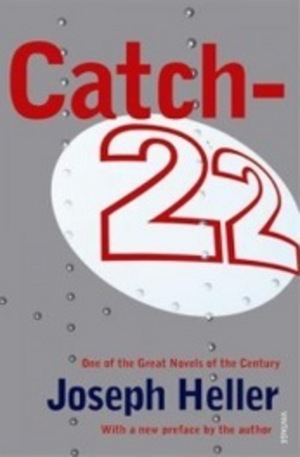Catch-22
There was a time when reading Joseph Hellers classic satire on the murderous insanity of war was nothing less than a rite of passage. Echoes of Yossarian, the wise-ass bombardier who was too smart to die but not smart enough to find a way out of his predicament, could be heard throughout the counterculture. As a result, its impossible not to consider Catch-22 to be something of a period piece. But 40 years on, the novels undiminished strength is its looking-glass logic. Again and again, Hellers characters demonstrate that what is commonly held to be good, is bad; what is sensible, is nonsense. Yossarian says, "Youre talking about winning the war, and I am talking about winning the war and keeping alive." "Exactly," Clevinger snapped smugly. "And which do you think is more important?" "To whom?" Yossarian shot back. "It doesnt make a damn bit of difference who wins the war to someone whos dead." "I cant think of another attitude that could be depended upon to give greater comfort to the enemy." "The enemy," retorted Yossarian with weighted precision, "is anybody whos going to get you killed, no matter which side hes on." Mirabile dictu, the book holds up post-Reagan, post-Gulf War. Its a good thing, too. As long as theres a military, that engine of lethal authority, Catch-22 will shine as a handbook for smart-alecky pacifists. Its an utterly serious and sad, but damn funny book.




То е много важно за нас, затова може да ви бъдем от полза като ви дадем следните насоки:
Резюме: Моля опишете вашето общо впечатление от продукта в няколко думи.